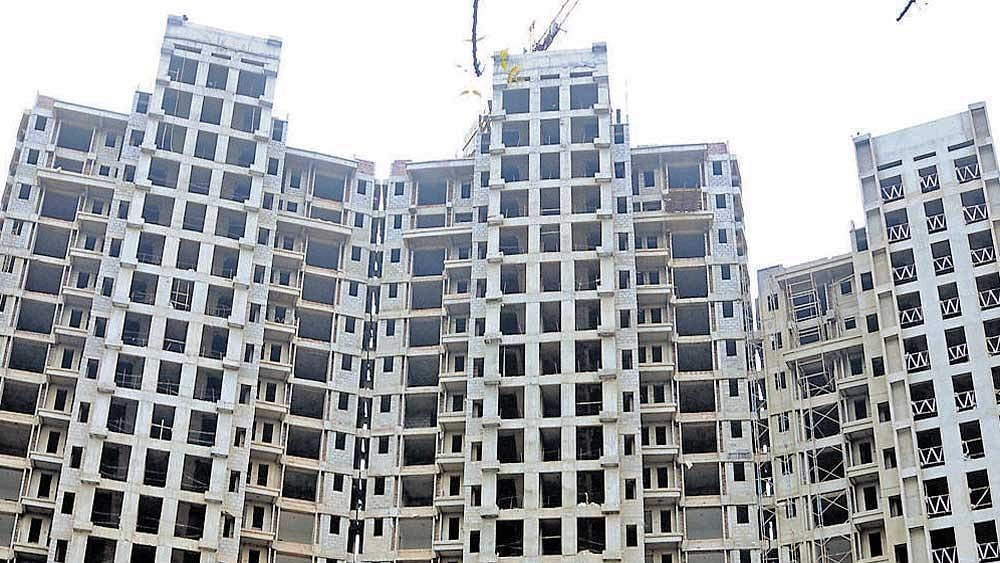
Permitted FAR carries no fee. Image for representation.
Credit: DH Photo
With the state government planning to introduce ‘premium’ floor area ratio (FAR) that allows construction of additional floors over and above what is permissible, the transferable development right (TDR) certificate is likely to lose its value. While the premium FAR is expected to help the real estate sector, acquiring land for public projects through TDR is unlikely to fetch a good response. What’s more, those in possession of TDR certificates will be the worst affected.
By amending the Karnataka Town and Country Planning Act, the government wants to introduce ‘premium’ floor area ratio by charging 40% of the guidance value for the developed land or site where the development is proposed. The maximum additional FAR should not exceed 60% of the ordinarily permissible floor area ratio, the amendment — which has been passed both in the assembly and the council — states.
The amendment has also laid down a condition that the money collection as premium charges will only be used for the purpose of land acquisition, and public infrastructure projects.
“The charges should not be utilised for repairs, maintenance and miscellaneous works at any time,” according to the Bill.
Big blow to TDR
Not just the TDR certificate holders but many projects which are in the pipeline are likely to hit a dead end as the developers see ‘premium’ FAR as cheaper and easy to buy than purchasing TDR as it is a “cumbersome” process caught in irregularities. Some builders also said that there are many fake TDR certificates in the market and that buying them would only entangle the builders in legal trouble.
It is estimated that there are at least 2,500 TDR certificate holders in Bengaluru, meaning these individuals have parted with their land for public projects. They were given TDR certificates as the authorities did not have the cash to compensate the land losers. On top of that, the BBMP has proposed several projects including the 100-km road project in the buffer zone of rajakaluves which will see the light of the day only if the land losers opt for TDR instead of cash compensation.
Kishore Jain, chairman of the Confederation of Real Estate Developers’ Associations of India (CREDAI) said premium FAR is a win-win both for the builders as well as the government. “It has been misconstrued that the move will lead to traffic congestion, density on civic infrastructure etc but that is not true. The premium FAR can only be used on certain roads under zoning regulations. It cannot be used everywhere,” he said, adding the new rule will also fetch additional revenue for the government.
There is a view that the premium FAR should have been charged on par with guidance value instead of capping it at 40%. “One bright side of the rule is that there is no setback relaxation but the amendment is likely to help only big builders,” an urban planner said.